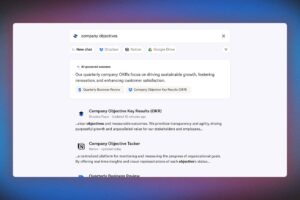A Debate on Copyright Protection vs Technological Advancement Authors, including Mike Huckabee, Sue Meta, Microsoft, and Others Over Use of Their Work in AI Tools
A group of authors, including former Arkansas Governor Mike Huckabee and Christian writer Lysa TerKeurst, has filed a lawsuit against Meta, Microsoft, and other companies over the use of their work in building AI tools. The authors allege that their books were pirated and used in datasets that trained AI models without their permission. The suit also includes EleutherAI, an AI research group, and Bloomberg as defendants.
This class action suit is the latest in a series of legal actions taken by authors who claim that their work has been used by tech companies without proper authorization. George R.R. Martin, Jodi Picoult, and Michael Chabon have previously sued OpenAI for copyright infringement.
Expanding AI Models through Unauthorized Use of Books
The authors’ lawsuit centers around the unauthorized use of their books to train AI models. The datasets used to train these models are crucial in developing the AI’s ability to generate text and understand language. By using copyrighted material without permission, the authors argue that companies have infringed upon their intellectual property rights.
The inclusion of EleutherAI and Bloomberg in the lawsuit suggests that the authors believe these companies were directly involved in the creation and distribution of the AI models that utilized their work. It remains to be seen how the court will interpret the involvement of these entities.
Previous Legal Actions against OpenAI
The lawsuit against Meta, Microsoft, and the other defendants mirrors previous legal actions taken against OpenAI. OpenAI is a technology company focused on developing AI models, and it has faced multiple lawsuits from authors who claim that their work was used without permission.
This ongoing legal battle raises important questions about the ethical and legal boundaries of using copyrighted material to train AI models. As AI becomes increasingly advanced and capable of generating original content, it is crucial for tech companies and researchers to ensure they are obtaining appropriate permissions and licenses for the work they use.
While the outcome of these lawsuits may depend on specific details and interpretations of copyright law, they serve as a reminder that the rapid progress of AI technology should be accompanied by measures to protect intellectual property rights.
An Ongoing Debate: Balancing Technological Advancement and Copyright Protection
The use of copyrighted material to train AI algorithms has sparked a broader debate about how to strike a balance between technological advancement and copyright protection. AI models rely heavily on large datasets to learn and develop their capabilities, but the sourcing of these datasets can raise ethical and legal concerns.
On one hand, using a wide range of texts can improve the quality and accuracy of AI models. This includes using copyrighted books, articles, and other written works. Access to these texts enables the AI to learn from a diverse range of writing styles and perspectives. However, this approach must be done with the proper permissions and licenses to avoid infringing upon intellectual property rights.
On the other hand, authors and creators deserve to retain control over their work and decide how it is used. The unauthorized use of copyrighted material without proper compensation or permission erodes the rights of these individuals, potentially harming their livelihoods and discouraging the creation of new works.
Ultimately, striking a balance requires collaboration and clear guidelines. Tech companies and AI researchers should work closely with authors and publishers to obtain the necessary permissions and licenses for the use of copyrighted material. Open communication and fair compensation can help safeguard intellectual property rights while




